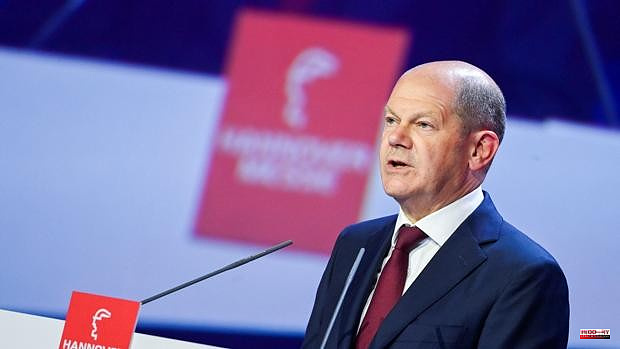After weeks of tough negotiations, German Chancellor Olaf Scholz and his "traffic light coalition", in which he governs with Liberals and Greens, has reached an agreement with the conservative opposition of the CDU-CSU for the creation of a special fund of 100,000 million of euros that will be used to rearm the Army. This agreement was necessary because it will require a modification of the German Basic Law and the consensus is part of the new international security situation that the Russian invasion of Ukraine has created. The agreement has been confirmed at dawn by representatives of the parties, after more than three hours of negotiation in Berlin and after several weeks of legal disputes. This item will be followed by an annual budget allocation of more than 2% of GDP and constitutes the first major rearmament operation since World War II.
"An initiative to speed up the contracting of arms purchases will be launched immediately and before the parliamentary summer break," the negotiations reported in a joint statement.
In response to the Russian invasion of Ukraine, Social Democratic Chancellor Olaf Scholz announced this massive rearmament in the Bundestag on February 27. Since then it has been necessary to work in consensus with the opposition, which has included several of its own demands in the project, fundamentally related to transparency in the contracting of arms. In the statement distributed by the Ministry of Finance, it is stated that "together we will ensure that the Bundeswehr is strengthened with additional investments" and that NATO's "target of 2% military spending will be achieved on average for several years." The leader of the SPD, Saskia Esken, had advanced in an interview with the Frankfurter Allgemeine Zeitung that "we will not reach the 2% target equally every year." “Quantities may not be as high in the first two years, and then there comes a year when a lot is needed,” he had pointed out, referring to the fact that if a large order is placed today, they will not have it for another three or three years. four years.
This has been the main point of discussion until the end. The CDU wanted to make it clear that the special fund will only be used for the Bundeswehr and that other state departments will not access it. The formulation initially planned, «to strengthen the alliance and defense capacity», was too little specific and they forced it to be modified. The Greens, in particular, wanted the money to also be used to finance cyber defense and support for partner countries, but in the end it will not be this fund that will be used for those purposes, which will come under the annual federal budget. The government will shortly present a strategy to strengthen security in cyber and information space. "The necessary measures for cyber security, civil protection and to strengthen and stabilize partners will be financed from the budget," sources at the Ministry of Finance, Christian Lindner, have confirmed.
Along with the law foreseen for the establishment of this special fund, an economic plan must also be decided with the specific acquisition projects, as the negotiators have also established. “Its realization will be accompanied by an advisory body of the Budget Commission of the German Bundestag,” the text specifies. The agreement further guarantees the following for the future: "After the special fund has been used, the funds necessary to achieve the then-valid NATO capability objectives will continue to be available."
During a conversation with citizens in his Potsdam constituency on Sunday, Scholz justified that the 100 billion special fund is "necessary for a strong Bundeswehr." "It is necessary so that no one dares to attack us or our allies," he said, "of course, if you have broken international law, you will often have the idea to do it again," Scholz said, referring to Putin and the war. of aggression against Ukraine.
In the weeks prior to the agreement, the government parties had said that compliance with the 2% target required by NATO should not be anchored in the Basic Law, as the CDU had initially proposed, but this point was left open in the negotiation results. The GDP is not yet known when the budget is set, so you don't know at this point whether the target will ultimately be met with the budget plans or not. The Federal Statistical Office reports the result of calculations on GDP around 15 days after the end of each year.
The defense policy spokesman for the liberal parliamentary group (FDP,) Alexander Müller, has warned that "the special fund must be included in the Basic Law before the summer holidays, otherwise we will lose a lot of time." Before the industry hires new staff and orders preliminary materials and products, it wants to make sure that the funds are also legally secured.












